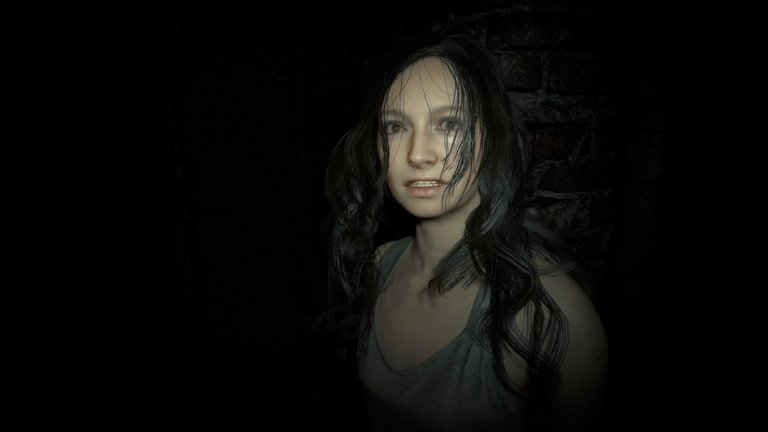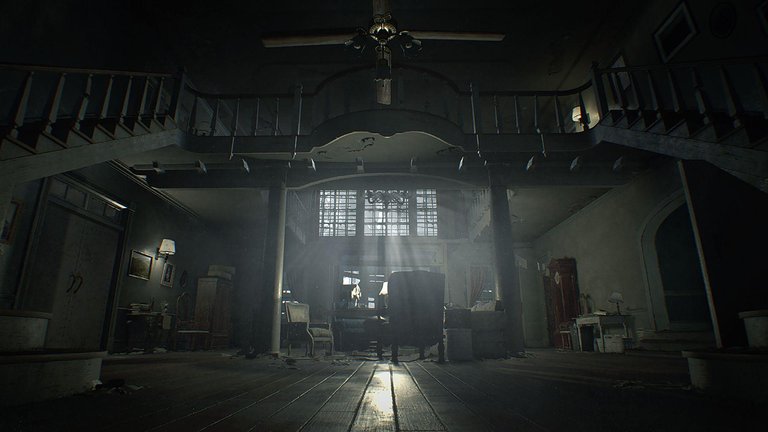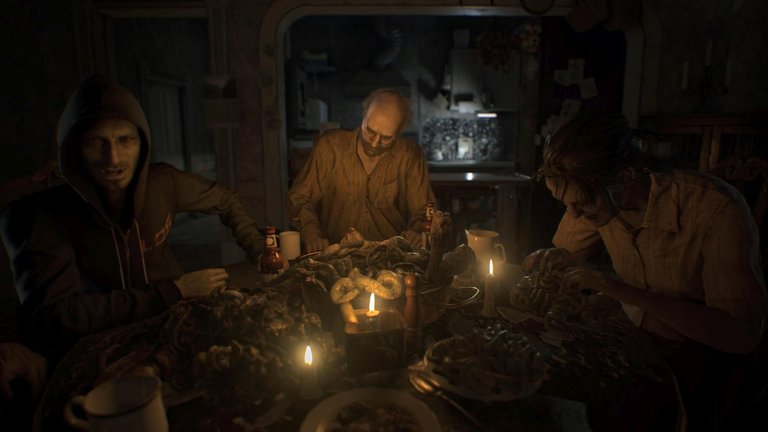Resident Evil VII may be the most familiar reinvention of a franchise that you’ll ever get to experience. This isn’t a new or groundbreaking sequel; it is, in fact, a tighter, more focused approach to what made the first Resident Evil title so popular. It’s a game that ditches the bombastic yet shallow grandiosity of the previous two games, trading it for a more intimate horror experience that the series desperately lacked for so long.

The move to first-person, a first in the main Resident Evil series, wasn’t a coincidence; it was surely driven by the unmeasurable hype surrounding Konami’s Silent Hills (aka P.T.), one of the greatest games not to be released, ever. Resident Evil VII reinvented itself by carefully studying what the players wanted (and that included filling the gap left by Silent Hills), what once made the franchise so successful, and how to avoid previous mistakes. It also takes a slight dip in Silent Hill 2 territory, as protagonist Ethan Winters travels to a derelict house in Louisiana, in search of his presumed-dead wife, Mia. Finally, no one can ignore the obvious cues from the Texas Chainsaw Massacre movies.
We’ve seen high quality first-person horror many times before. F.E.A.R. did it many years ago, and Amnesia or Outlast added their own twists to the genre, to name just a few. Resident Evil VII is one more to follow, helped by the narrative genius of Richard Pearsey, the man who helped write one of the most surprising videogame stories ever in Spec Ops: The Line.
Just like a great pot-pourri of videogame conventions, Resident Evil VII stirs them and offers only the best flavors. It’s almost like this game shouldn’t be called Resident Evil at all, but the brand’s reach is still too important to ignore, and new IPs are often ignored by players in search of the latest dose of annual filler.
Resident Evil VII has all the right survival horror ingredients, starting with the more confined location. There’s this foreboding sense of danger, of nasty things happening in this property where everything is filthy and there isn’t a sign of human dignity to be seen. You can almost smell the putrid stench in this place. The house may seem deserted, but it’s not quite like that, and it has some of the most contrived lock systems that you could expect from a hick family. It’s a labyrinthine place, one that will require plenty of backtracking, some particularly nasty passages through the basement, and the inevitable and daunting face-offs with the Baker family members. For all its fair share of jump scares, Resident Evil VII actually manages to balance everything neatly with an overwhelming sense of dread and a constant chill down your spine. What was the last Resident Evil game that managed to do so in such an effective way?
Resident Evil VII seems designed like the ultimate horror theme park, with perfectly paced boss encounters and clichéd but effective spooks around the disgustingly decayed house. How long can a single place feel inviting enough – so to speak – to grab your attention for the duration of an entire game? Quite long, it seems, thanks to videotapes that show other character’s points of view against the Baker family, and nearby locations that will keep you busy for a while. It truly seems like a perfect survival horror experience, one where you even have to manage your inventory and ammo with a tight grip, so that you won’t be caught off guard.

But is it really perfect? Sadly, the answer is no. And the final third of the game is to blame.
After a surprising shift of location to a nearby place, Resident Evil VII starts to show a disturbing lack of ideas and resorts to some pretty bland backtracking, with a focus on numerous monsters rummaging in tight spaces, and slim ammunition. Soon enough, I was wishing for a return to the house, no matter how haunting or treacherous it might be. In my opinion, this section drags down what could have been a perfectly focused, short but sweet survival horror experience, as if Capcom wanted to artificially inflate the game’s length to take it closer to the 10-hour mark.

The question that remains is where will Capcom be taking Resident Evil VII in the future. The ‘Not a Hero’ DLC, planned for this December, seems to be going the wrong way already, with a trigger-happy Chris Redfield and a heavy focus on first-person shooting. Is this what fans wanted after praising the game for its atmosphere, focus and spotless balance of horror and puzzles? I don’t think so, and I hope Capcom won’t make the same mistakes when it comes to a more than certain Resident Evil VIII.
When all is said and done, Resident Evil VII is a great game, taking the series back on track to the survival horror roots that made it popular, with a nice story and, above all, a memorable and spine-chilling cast of supporting characters. Don’t go in the Baker house expecting something groundbreaking or surprising – in fact, this game would surely be as great in third-person as it is in first-person, although Capcom’s choice certainly elevates the thrills of the face-offs to a superior level. You can, however, count on a fair share of thrills, stunningly degenerate visuals, and a trip that you won’t forget anytime soon.
Final rating: 9.0 Baker family members out of 10
Follow me on Steemit @gamingstation for more thinking man’s reviews and posts!

Awesome review. Resident evil VII was definitely a step in the right direction for capcom. Seriously looking forward to see what they do with RE VIII.
No doubt about it. If they go back to shallow shooting from previous games, I'm gonna be mad!
@originalworks